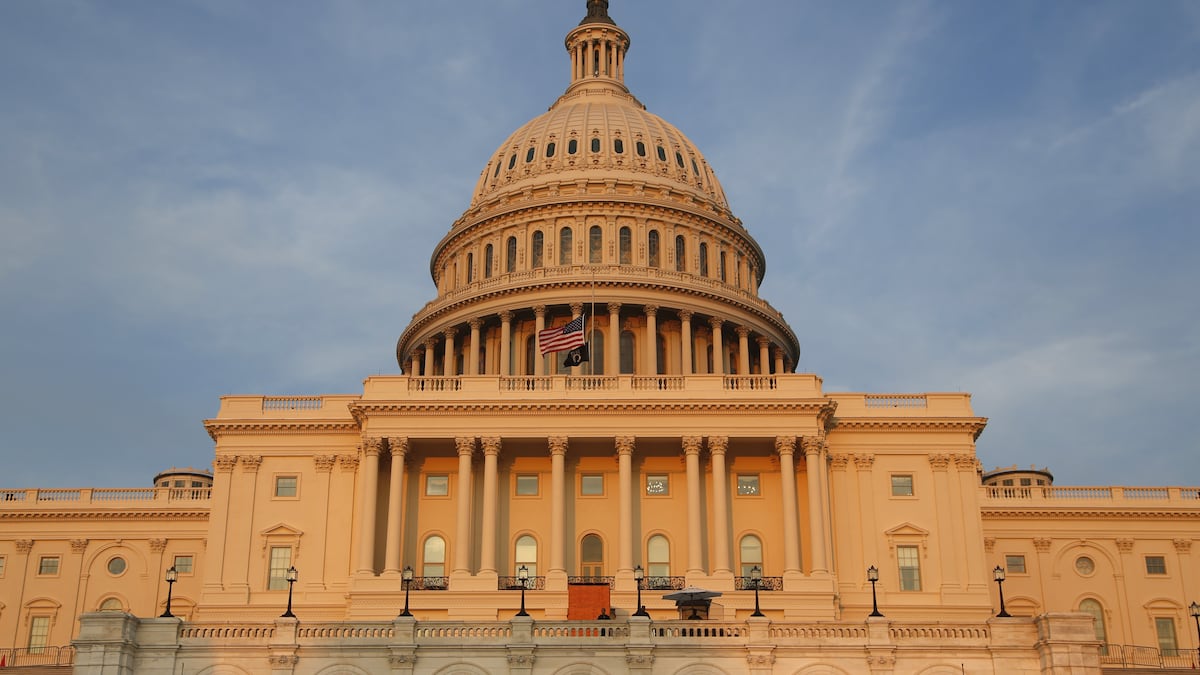- Crypto regulation is coming sooner than later, Bernstein analysts predict.
- They see Trump’s re-election as tipping the scales towards pro-crypto policies.
The chance of new crypto laws in 2025 have skyrocketed to 70%, according to Bernstein analysts.
“A major overhaul is underway,” wrote the research firm’s analysts in a note, “which is strongly pro-crypto and is likely to provide the industry a historic tailwind.”
Bernstein said that the combination of President Donald Trump, a Republican majority in the Senate, pro-crypto politicians spearheading key committees, and a smattering of industry-friendly appointments have cleared the way for new crypto laws.
In the report, Bernstein mentioned several bills aiming to give the crypto industry what it’s called for for years: regulatory clarity.
Here are 10 of the bills that are worming their way through the political machinery of Washington DC that Bernstein said could have an impact.
Payment Stablecoin Act
Bernstein gives the Payment Stablecoin Act a 70% chance of getting approved.
It builds on former Republican Representative Patrick McHenry’s Clarity for Payment Stablecoin Act, first introduced in 2023.
Republican Senator Cynthia Lummis introduced the Payment Stablecoin Act in 2024. It includes many of the same provisions as its predecessor.
The law includes a prohibition on algorithmic stablecoins, the requirement that these tokens should be US-issued, and backed one-for-one by Treasury bills, cash and central reserves.
GENIUS Act
The Guiding and Establishing National Innovation for US Stablecoins Act, or the GENIUS Act, is the newest piece of crypto-related legislation.
“We believe that there is a 70% chance of passage in the upcoming Congressional session,” Bernstein wrote.
The bipartisan act was introduced in February by Lummis and fellow senators Bill Hagerty, Kirsten Gillibrand and Tim Scott.
The bill would require stablecoins to be fully backed, similar to the Payment Stablecoin Act, but takes a more flexible approach to those reserves, including requiring a study on algorithmic stablecoins to be undertaken.
Senator Elizabeth Warren said this week that the bill didn’t have strong enough anti-money laundering and consumer protection for her to support it.
FIT21
The Financial Innovation and Technology for the 21st Century Act, or FIT21, passed through the House in May. It’s now heading to the Senate.
Republican Representative Glenn Thompson introduced the bill in 2023 and it gained bipartisan support.
The bill sought to establish rules about how the Securities and Exchange Commission, and the Commodity Futures Trading Commission should regulate cryptocurrencies.
While Bernstein mentioned it as a bill “to watch out for,” the analysts didn’t give any odds of how likely they think it is that it will pass.
RFIA
Another bill “to watch out for” is the Responsible Financial Innovation Act, Bernstein said.
Lummis and Gillibran introduced RFIA in 2022 and reintroduced it in 2023.
Bernstein named it the most “comprehensive regulation that seeks to address the broader integration of digital assets into the US financial infrastructure,” and gave it a 50% chance of passing.
However, bills introduced in the 118th Congress are considered dead and will have to be reintroduced.
RFIA hasn’t been reintroduced in the 119th Congress.
Stablecoin Transparency Act
Hagerty introduced the Stablecoin Transparency Act in 2022. He reintroduced it at the beginning of the 119th Congress.
If passed, the bill will require stablecoins to be backed by fiat money, Treasury bills, or fully collateralised repurchase agreements, as well as issuers to release monthly updates on reserves.
Bernstein gave it a 30% chance of passing.
National R&D Strategy for Distributed Ledger Technology Act
Senators Roger Wicker and Lummis first introduced the National R&D Strategy for Distributed Ledger Technology Act in 2022.
The bill sought to “develop a national strategy for the research and development” of blockchains, and to help identify areas where the US government could aid in its adoption.
Despite the bill not not having been reintroduced during the current congress, Bernstein gave it a 10% chance of passing.
Preventing Illicit Finance Through Partnerships Act
Hagerty and Lummis introduced the Preventing Illicit Finance Through Partnerships Act in 2024.
The bill sought to establish a pilot programme for information sharing between the private sector and the Department of Justice, the Financial Crimes Enforcement Network, and the Department of Homeland Security.
“By fostering collaboration and information sharing, this bill will ensure that all parties at the table are working together to detect and disrupt bad actors,” Hagerty said in a statement.
Bernstein gives it a 10% chance of passing.
Keep Innovation in America Act
The Keep Innovation in America Act is another bill from McHenry.
He introduced it in 2023 to modify “provisions enacted by the Infrastructure Investment and Jobs Act relating to the definitions of broker and digital assets and their reporting requirements.”
Bernstein put the odds of it passing at 10%.
BITCOIN Act
Lummis is also behind the Boosting Innovation, Technology, and Competitiveness through Optimized Investment Nationwide Act, or the BITCOIN Act as it’s more commonly known.
She introduced it in July. The bill seeks to establish a strategic Bitcoin reserve to serve as an additional store of value to bolster America’s balance sheet.
After Trump’s November 5 win, Lummis expressed her enthusiasm, tweeting: “We are going to build a strategic Bitcoin reserve.”
Bernstein gives it a 5% chance of passing, without expanding on the reasons behind why they still considered it having a slim chance like that to pass, despite it not having been reintroduced.
Still, Trump’s sweeping crypto-focused executive order in late January called for the evaluation of a digital assets stockpile.
Digital Asset Anti-Money Laundering Act
Warren introduced the Digital Asset Anti-Money Laundering Act in 2023.
It sought to apply existing anti-money laundering requirements to digital assets providers and facilitators.
It also sought to classify most crypto platforms and projects as financial institutions.
Warren reportedly struggled to find co-sponsors to the bill. It hasn’t been reintroduced. Bernstein puts the likelihood of it passing at 5%.
Andrew Flanagan is a Markets Correspondent for DL News. Got a tip? Reach out to aflanagan@dlnews.com.







